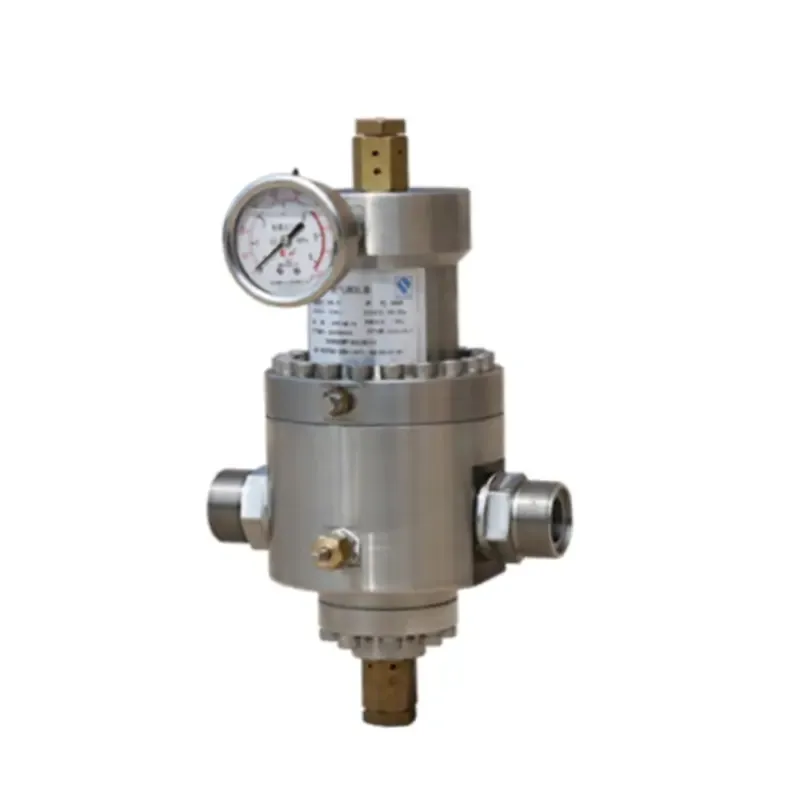
8 月 . 19, 2024 17:54
Back to list
Natural Gas Safety Valve Importance for Residential and Commercial Applications
The Importance of Natural Gas Safety Valves
Natural gas is a widely used energy source, powering homes, businesses, and industries across the globe. While its benefits are numerous, the safe handling and management of natural gas are paramount due to the inherent risks associated with its use. One of the critical components in ensuring the safety of natural gas systems is the safety valve. This article delves into the function, importance, and maintenance of natural gas safety valves.
What Are Natural Gas Safety Valves?
Safety valves are mechanical devices designed to automatically relieve pressure from gas systems when it exceeds a predetermined limit. In the context of natural gas, these valves play a vital role in preventing hazardous conditions that could lead to explosions or leaks. The valve operates by opening to release excess pressure, thus safeguarding pipelines, storage tanks, and other equipment from failure.
Importance of Safety Valves
1. Preventing Overpressure One of the primary functions of safety valves is to prevent overpressure conditions. In the event of a malfunction in the system, such as a blockage or equipment failure, pressure can build up rapidly. Safety valves are engineered to detect these changes and act swiftly, effectively bypassing the excess pressure and maintaining system integrity.
2. Safety Assurance Natural gas is flammable and poses significant health and safety risks if not handled correctly. Safety valves serve as critical safety devices that provide peace of mind to operators and users. By automatically venting excess pressure, these valves drastically reduce the risk of catastrophic failures that could result in fires, explosions, or harmful gas leaks.
natural gas safety valve

3. Regulatory Compliance Regulatory bodies have established numerous safety standards and guidelines for natural gas handling. The installation of safety valves is often mandated as part of compliance with these regulations. Failure to comply can lead to legal ramifications and significant penalties for natural gas operators.
4. Economic Protection Beyond safety, the presence of functioning safety valves also contributes to economic protection. By preventing system failures, operators can avoid costly repairs and downtime. Moreover, protecting infrastructure means maintaining a steady supply of energy, which is crucial for economic stability.
Maintenance of Safety Valves
To ensure that safety valves operate effectively, regular maintenance is essential. Operators should establish a routine inspection schedule where valves are checked for wear and tear, proper functionality, and any signs of corrosion or damage. Regular testing helps ensure that valves will perform correctly under pressure.
Furthermore, it’s crucial to ensure that the safety valve settings are appropriate for the specific system and its operational pressures. This involves calibrating the valve according to manufacturer specifications and prevailing safety standards. If adjustments or replacements are needed, they should be carried out promptly by trained professionals to uphold system safety.
Conclusion
Natural gas safety valves are indispensable components of natural gas systems, contributing significantly to the safe management of this valuable resource. By preventing overpressure, ensuring safety, complying with regulations, and protecting economic interests, these valves serve multiple critical functions. However, their effectiveness hinges on regular maintenance and vigilance by operators. In an era where energy demand continues to rise, fostering a culture of safety around natural gas infrastructure is not just prudent—it is essential for the wellbeing of individuals and communities alike.
Latest news
-
Unlocking The Quality Gas Pressure ReducersNewsNov.01,2024
-
The Role of Gas Pressure Reducing StationsNewsNov.01,2024
-
The Importance and Functionality of Safety Relief ValvesNewsNov.01,2024
-
The Essential Role of Safety Valves in Natural Gas ApplicationsNewsNov.01,2024
-
The Essential Role of Gas Pressure RegulatorsNewsNov.01,2024
-
Enhance Your Premium Gas FiltersNewsNov.01,2024

